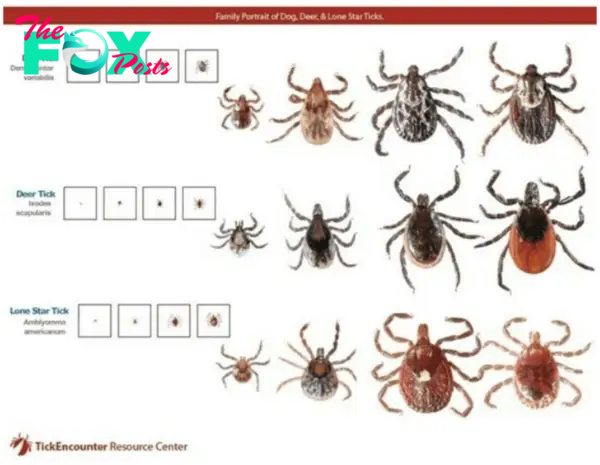Politics
Haley’s Healthy Habits in RI: Tick bites and prevention – Wood River Health
The following article was written by Hayley Jackson, DNP, MSN, FNP-BC. A board-certified family nurse practitioner, Hayley provides Express Care Services at Wood River Health. She is passionate about holistic patient-centered care, Lifestyle medicine and women’s Health.
With warmer winters in the northeast come ticks-and lots of them. Here in Rhode Island, there are many species of ticks, some of which are capable of transmitting disease. The most notorious for spreading lyme disease is the Deer Tick also known as the Black Legged Tick (pictured below).
After a tick bite many patients wonder if they need antibiotics. As with most things in medicine—this depends. General guidelines recommend a one-time dose of antibiotics, for anyone that removed a tick within 3 days so long as the tick was attached for at least 36 hours (Williams et al., 2021). This guideline assumes that the antibiotic of choice is appropriate and safe for the patient. Those who are certain that the tick was present for less than 36 hours may NOT require antibiotics. This is because research shows that ticks that are flat and NOT engorged are less likely to transmit diseases (Williams et al., 2021). For patients that do not fit these criteria, alternatives are available and should be discussed with a medical provider.

Tick Bite Prevention 101
Avoid Prevalent Areas – Ticks can often be found in areas with tall grass and leaf litter on the ground. When possible, avoid these areas or stay on dirt or sand paths that are cleared.
Cover Your Skin – Wear clothing, long sleeves and long socks to cover any exposed skin-tuck clothing in or layer it so ticks can’t crawl between. When selecting what to wear, try to choose light colors so ticks can be more easily spotted-many ticks can be very small. You may also consider spraying your shoes and extremities with DEET containing bug spray.
Tick Check – Perform head to toe tick checks whenever you could be exposed. Ensure to check the hair, scalp, groin, and underarms-ticks often like to crawl to warm spots. Consider showering after any hikes or nature walks to improve your odds of detecting ticks.
Don’t Forget the Pets – Pets are a very common cause of inadvertent tick bites. Ensure to keep up to date with their vet recommended tick prevention, perform tick checks on them, and consider keeping them off couches and beds—I know it’s hard!
References
Fitzpatrick, J., Ginsberg, H. (2021). Current science on tick borne disease in rhode island. https://www.usgs.gov/centers/eesc/news/current-science-tick-borne-diseases-rhode- island#:~:text=Two%20other%20human%2Dbiting%20tick,tick%20and%20American% 20dog%20tick.
Williams, A. L., Bevan, J., & Arnold, M. J. (2021). Lyme Disease: Updated Recommendations from the IDSA, AAN, and ACR. American family physician, 104(6), 652–654.
Disclaimer
This article is not intended to treat, diagnose, or manage anyone’s physical or psychiatric Health. This article is intended to create discussion, create community, and inform. Please discuss your specific Health and psychiatric concerns with your personalized team of professionals or emergency services if you feel this is appropriate.
-

 Politics3h ago
Politics3h agoWhy Trump Actually Needs Mexico
-

 Politics3h ago
Politics3h agoMan Convicted of Killing Laken Riley Sentenced to Life in Prison Without Parole
-

 Politics5h ago
Politics5h agoAmericans agree more than they might think − not knowing this jeopardizes the nation’s shared values
-

 Politics5h ago
Politics5h agoRed flag laws are still used in Colorado’s Second Amendment sanctuaries, just less frequently
-

 Politics9h ago
Politics9h agoHow the Biden Administration Protected Abortion Pill Access—and What Trump Could Do Next
-

 Politics9h ago
Politics9h agoWhy Trump’s Tariffs Could Raise Grocery Prices
-

 Politics20h ago
Politics20h agoThe First Trans Member of Congress Expected Pushback Like Mace’s Bathroom Rule
-

 Politics20h ago
Politics20h agoNew York Prosecutors Oppose Dismissing Trump’s Hush Money Conviction


























